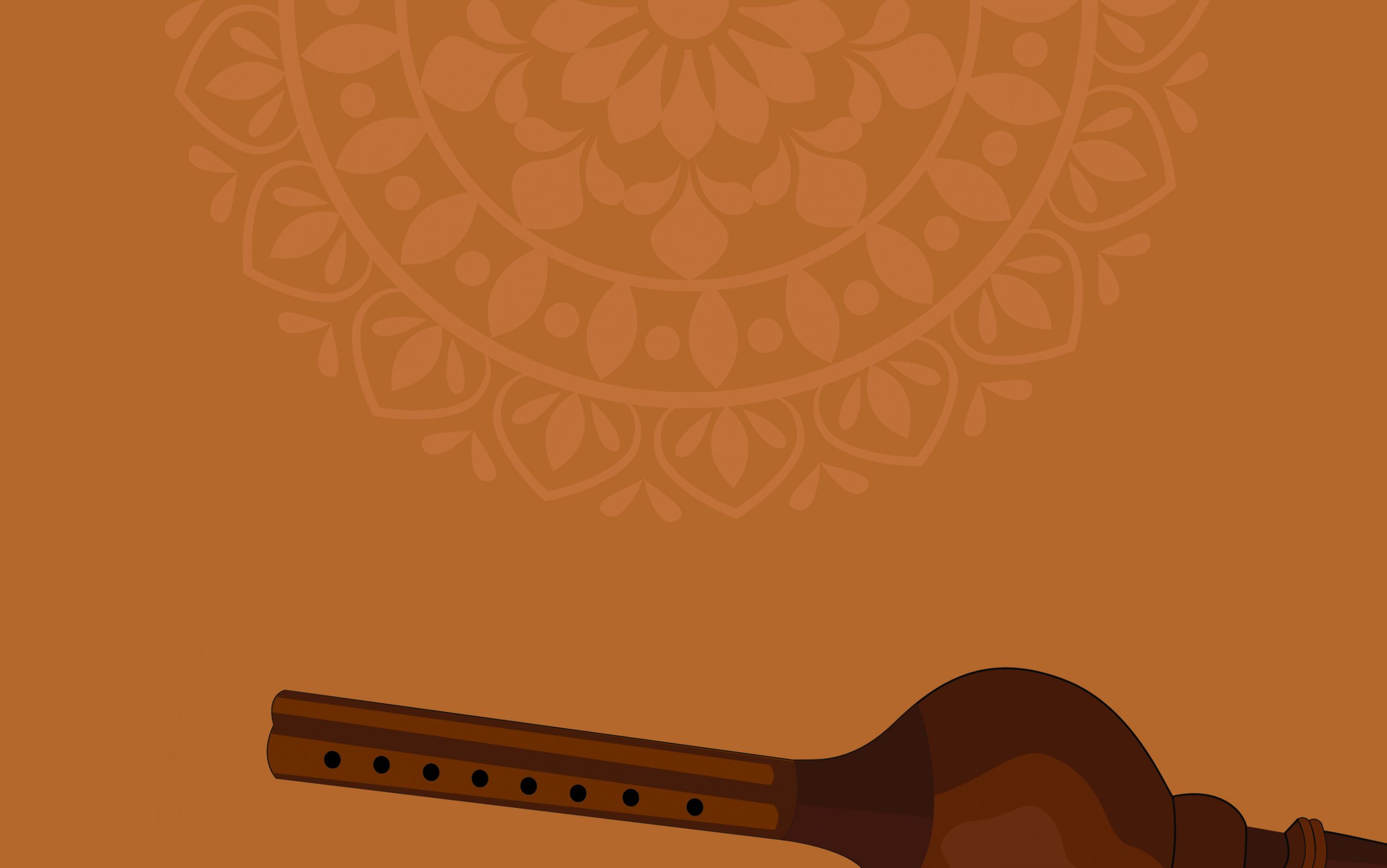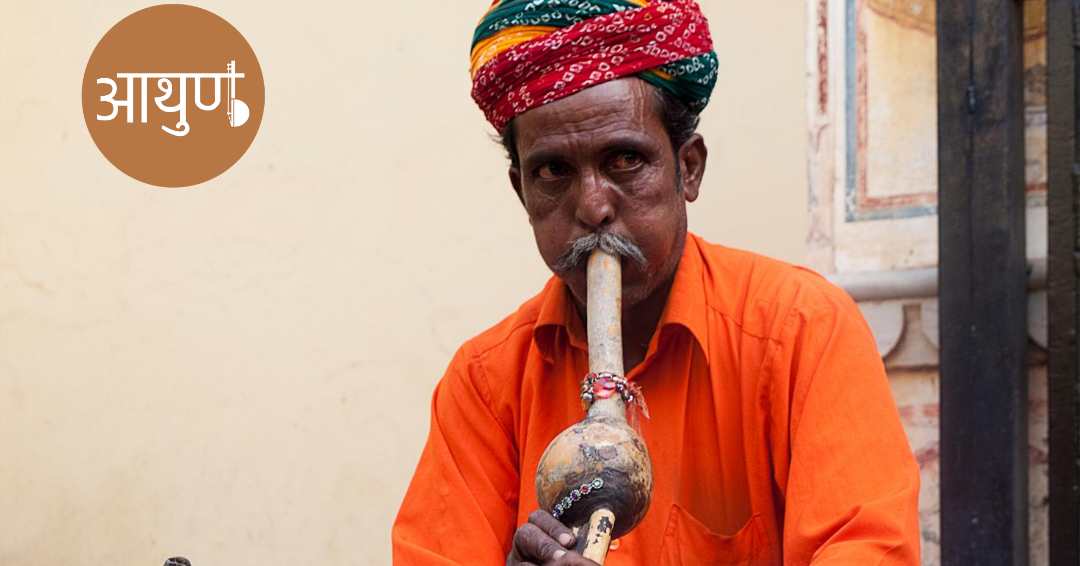


The pungi also called the been, is a wind instrument played by snake charmers in the Indian subcontinent. The instrument consists of a mouth-blown air reservoir made from a gourd, which channels air into two reed pipes. The pungi is played with no pauses, with the player employing circular breathing.
Pungi comes with variations in nomenclature as Been or Bin, Tumbi, Nagasar, SpurerBansi in the northern part of India, while the same instrument is referred as Mahudi, Pungi, PambaattiKuzhal in the south, mostly held by snake charmers to entertain people, said to have been developed initially to go with the folk music of India.
Indian musical practices often coincide with religious ideals. An example would be the comprehensive practice of mantra incantation, which can be defined as a succession of syllables (with or without meaning) used to create prayer to a supernatural force or deity. The pungi is believed to be one of the many ways in which one can communicate with the gods through devotional genres.

Pungi is basically a snake charmer’s bread winning equipment today; however, its origin comes from the genre of folk music instruments, which was popular in Badagutittu fifty years before approximately, often used during religious occasions as Nadaswaram in the south with a still longer shape and accompaniment of a drum instrument, by talented musicians. However, prior to this it derived from Indian folk music and was used for religious purposes like snake charming.
Pungi is made out of dried bottle gourd, specially seasoned for the purpose. With a small calabash to store or hold the air blown in and to be released through two reed pipes fitted at the bottom of the guard called Jivala, one has to make constant drone sound and the other to play melody, while the top end is fitted with a tube through which the Pungi player blows air through his mouth. With his bulb cheeks collecting air from his breath, bringing out a shriek melody holding the audience spellbound, presumably the snake too, the drone and melody is played without a pause for aesthetic reasons. Although in recent times, metallic tubes are inserted in the calabash part of Pungi.